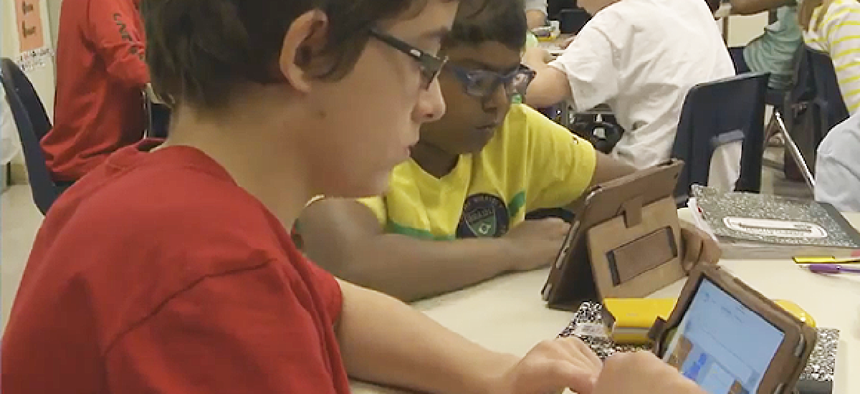Can learning games replace standardized testing?


Connecting state and local government leaders
To improve the quality of tests and reduce the amount of classroom time spent on standardized testing, the Department of Education is looking at using learning games as next-generation assessment tools.
Standardized testing has come under fire from all quarters – student, parents, teachers, administrators and state education departments. So to improve the quality of tests and reduce the amount of classroom time spent on standardized testing, the Department of Education is looking at using learning games as next-generation assessment tools.
These tools would allow students to engage in activities and games that measure their knowledge and performance in real time. They can provide results, regularly track students’ progress through grade-level content, adapt to specific students’ needs and generate reports for teachers.
To support this effort, the Department of Education has been funding ed-tech entrepreneurs for three years through its Small Business Innovation Research program, which provides a rapid, iterative research and development process and pilot studies to properly evaluate how the product improves students’ outcomes.
While many of the tools are not designed to fully address state content standards, they do emphasize next-gen assessment methods by using digital games, puzzles, simulations and virtual environments to test students’ mastery of content in math, science, reading and special education.
Besides testing content retention, some of the projects also provide diagnostic assessments that can explain why a student struggles with learning and formative assessments that give students immediate feedback. All of the projects provide a feedback loop to teachers so they can aggregate data at the class and student level to improve their instruction.
A recent White House blog post describes eight assessment projects in development. The StepWise Artificial Intelligence virtual tutor, for example, aligns with Common Core State Standards for Algebra I and helps students through each step of a solution. It provides results to teachers and is being designed as a replacement for current end-of-unit testing.
The Inq-Blotter dashboard, meanwhile, gives science teachers real-time performance reports when students do inquiry-based lab work aligned to Next General Science Standards. Eco, also aligned to NGSS, is a multi-player game that lets students build a virtual ecosystem.
Other projects, like the Assessment-to-Instruction and iASK, assess elementary and middle school readers’ literacy skills and can adapt based on student responses. The IvySCIP platform allows educators to measure social and emotional learning needs of elementary students with High-Functioning Autism Spectrum Disorder and can provide the data needed to develop individualized education programs.




